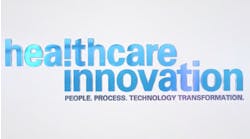The early feedback on artificial intelligence (AI) and blockchain progress in the healthcare sector shows that the technologies are still struggling to find their place, according to the 2019 Healthcare Prognosis report from venture capital firm Venrock.
Last month, Venrock conducted its survey, which included an array of healthcare-related questions, generating responses from more than 250 executives at health IT startups, large employers, insurance companies, healthcare providers, academics, the government, investors and professional service providers.
The results showed that AI is slowly finding its place, with 53 percent of respondents saying they are still waiting for it to make a difference in healthcare. However, 46 percent said that it has made a difference—either marginally (39 percent) or meaningfully (7 percent)—with just 1 percent saying that it has not, and never will.
Blockchain struggles as much in healthcare as in other segments, the findings revealed. At the typical pace innovation matures in healthcare, blockchain may never matter, with 75 percent of respondents saying that it has struggled to find its place in healthcare. Eighteen percent said that in 2019, there will be blockchain use cases that benefit patients, with 7 percent reporting they don’t know what blockchain is.
The 2019 report included various other findings as well, touching on how the political landscape could affect innovation, the growth of health IT companies, the impact of the Apple Watch, the Amazon/Berkshire Hathaway/JP Morgan healthcare partnership, patient privacy and more.
The findings showed that optimism is continuing for health IT companies, as the overall sector sentiment is enthusiastic, with increased expectations for new company creation and decreased concerns about funding. With talent predicted as the biggest challenge ahead and funding predicted as the least, there is increased evidence of a frothy market, according to the researchers.
Regarding the regulatory landscape, the industry has very low expectations that the mid-term elections will lead to positive changes for the U.S. healthcare system, with 61 percent saying the elections will not matter, and 28 percent asking, “is it 2021 yet?” And, 47 percent of respondents said they are concerned that regulatory changes could pose challenging to healthcare innovations over the next year, but that number has dropped from previous years’ findings—63 percent expressed this concern in 2018, and 78 percent did in 2017.
Researchers noted that the Amazon healthcare venture “faces a sophomore slump of disillusionment, but keep in mind the usual learning curve sees a rebound in the junior year.” Just 9 percent of survey respondents said that the companies “might just pull off” the partnership, compared to 27 percent responding in the affirmative the year prior.
Meanwhile, the healthcare impact of the Apple Watch—which has continued to catch the eyes of health IT observers following the release of a recent Stanford University School of Medicine study that found the device could detect atrial fibrillation (AFib), a leading cause of stroke and hospitalization in the U.S—garnered mixed feedback from survey respondents. Forty-five percent of folks believe that the watch will be a widely-used biometric sensor and activity tracker to remotely monitor seniors, but 48 percent stated that the device will be “no more than a trendy consumer product.”
What’s more, the industry appears to also be split down the middle on whether there will be a backlash for violating patient trust and privacy, with exactly half of respondents on each side of the statement, “The industry is about to face a backlash for violating patient trust and privacy by harvesting and reselling client data.”

